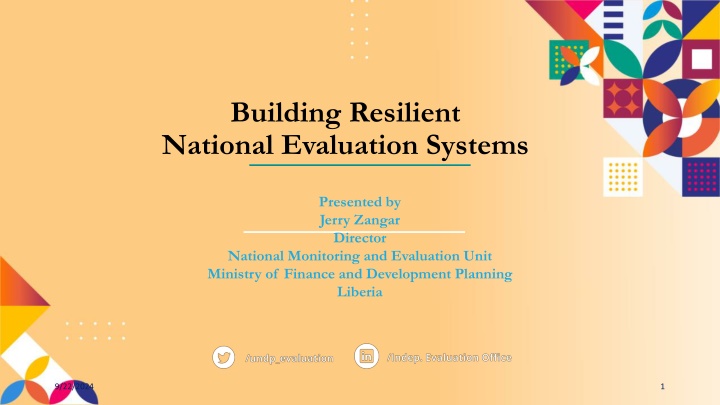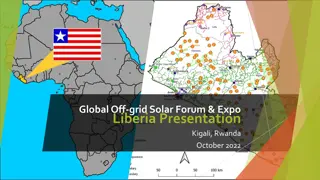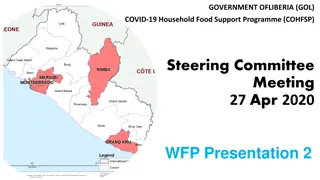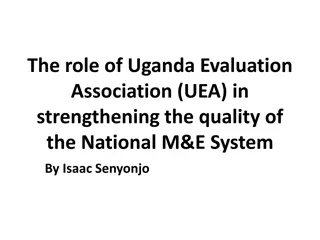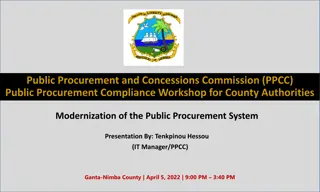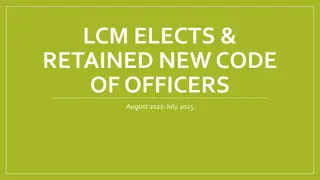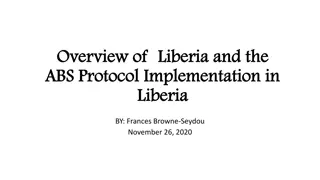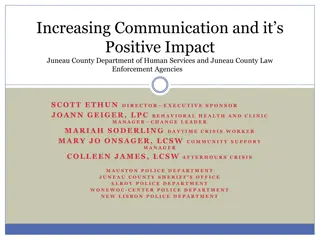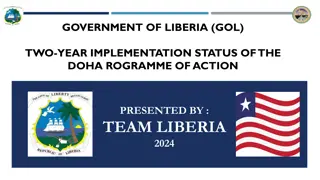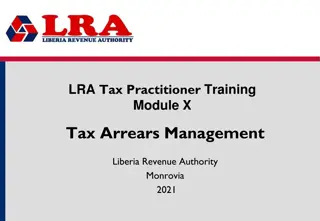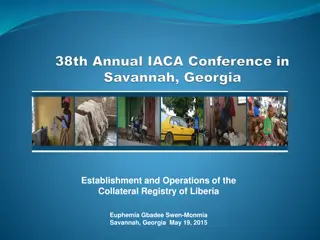Strengthening National Evaluation Systems in Liberia Amid Crisis
The pandemic and ensuing crisis in Liberia have strained public funds, affecting Monitoring and Evaluation (M&E) budgets. Shifts in funding towards the health sector have impacted M&E allocations, highlighting the need for sustainable financing mechanisms for National Evaluation Systems (NES). The role of Official Development Assistance (ODA) and private sector financing is explored to enhance the resilience and effectiveness of NES in the face of budget challenges.
Download Presentation

Please find below an Image/Link to download the presentation.
The content on the website is provided AS IS for your information and personal use only. It may not be sold, licensed, or shared on other websites without obtaining consent from the author.If you encounter any issues during the download, it is possible that the publisher has removed the file from their server.
You are allowed to download the files provided on this website for personal or commercial use, subject to the condition that they are used lawfully. All files are the property of their respective owners.
The content on the website is provided AS IS for your information and personal use only. It may not be sold, licensed, or shared on other websites without obtaining consent from the author.
E N D
Presentation Transcript
Building Resilient National Evaluation Systems Presented by Jerry Zangar Director National Monitoring and Evaluation Unit Ministry of Finance and Development Planning Liberia 9/22/2024 1
Outline The pandemic and further crisis has seen public funds stretched across multiple needs. How has this impacted M&E budgets. To what degree is the financing of national evaluation systems seen as an additional expense, in addition to sectoral and local government budgets? Can ODA (official development assistance) finance be used to strengthening of national evaluation systems? Role of Private sector Financing NES 9/22/2024 2
The pandemic and further crisis has seen public funds stretched across multiple needs. How has this impacted M&E budgets When Corona Virus hit the country, funding from Public Sector Investment Projects (PSIPs) was shifted toward the health sector to enable it to fight the pandemic. The pandemic and further crisis has significantly impacted the M&E Budget. Health workers were provided short-term training; isolation centers were setup; PPEs and test kids were procured; and laboratories were equipped. With this, there was a hold on the implementation of capital investment projects and shift of priority to the health sector thereby significantly impacting the M&E budget. 9/22/2024 3
To what degree is the financing of national evaluation systems seen as an additional expense, in addition to sectoral and local government budgets? In the 2022 National Budget of Liberia, financing the National Evaluation System was given a percentage of the total capital investment and it was kept for monitoring Government of Liberia (GoL) and Donor Projects (Dp s). The Government of Liberia and the UN System are the sources for National Evaluation System (NES) Finance. In order to ensure that NES financing is included in and embedded across sectoral and local government budgets, we must harness political buy-in from decision-makers. In the past, when capital investment proposals were developed, a certain percentage was kept for monitoring. This process seems ineffective, so beginning in FY 2022, 0.00177 percent of the capital investment budget (US$107,341,445.23) goes toward monitoring & evaluation, which is US$US$190,000 as allotment. The amount is insufficient to cover all capital investments for GoL and DPs. National Evaluation Systems need a value for money consideration because the benefits of governance and accountability to the government must be highlighted from the start and can be tracked throughout implementation, with an impact assessment performed after a certain period. 9/22/2024 4
Can ODA (Official Development Assistance) finance be used to strengthening of national evaluation systems? Role of Private sector Financing NES ODA can be used to strengthen the national evaluation system because most underdeveloped countries don t have adequate funding to monitor and evaluate capital investment, which makes the intervention of ODA very important. The way to ensure a sustainable approach is when there is political buy-in. Politicians need to know that their country can't make significant progress relying on donor intervention every time. Every project or investment undertaken, must have M&E allotment embedded in the project implementation budget for monitoring, periodic reviews, performance evaluation and eventually impact evaluation. The private sector's role is more visible when there is a Public-Private Partnership (PPP) arrangement or a capital investment that has a huge impact on the private sector. Once these two things happen, the private sector can finance NES. 9/22/2024 5
